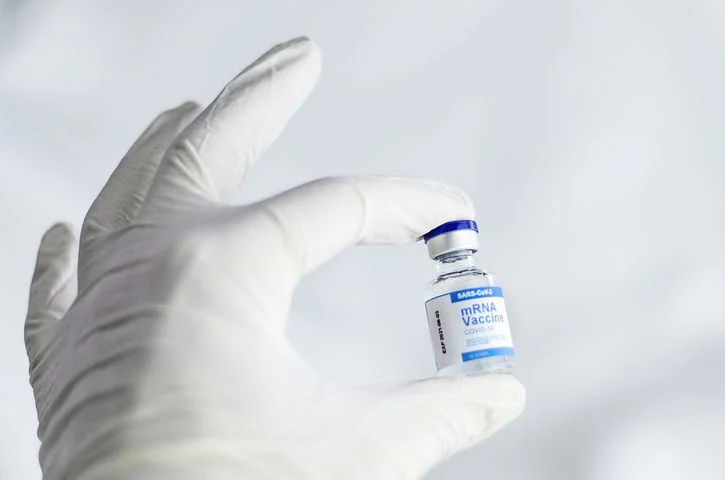Initiating in 2020, humanity faced a rampant pandemic induced by the emerging SARS-CoV-2 virus. While frontline healthcare workers provided treatment for infected individuals, scientists avidly researched for the COVID-19 vaccines that are administered today.
While vaccines have saved millions of lives by combatting infectious diseases like polio and measles, some individuals remain reluctant to get them. This article aims to clarify the sociological cause of low vaccine uptake and present psychological theories of behaviour change to promote community vaccination.
Sociological factors affecting vaccine hesitancy:
Various elements are impacting COVID-19 vaccine hesitancy and rejection. To find the root of this public health issue, there must be an upstream approach.
One of the fundamental contributors is a social force that has developed in many communities. This force evolves within a society and governs people’s behaviour by applying pressure on them. In this case, the solution would be to sanction COVID-19 vaccination to prevent conformity. If most of the people in society refuse vaccination, the minority tends to follow in fit in, despite considering consequences.
In the modern age, the accessibility of media is widely enhanced causing it to have an impressive influence on people´s attitudes and beliefs. The outbreak of the novel COVID-19 pandemic was unexpected; thereby, it resulted in miscommunication among the government and scientists. As the Bradford Institute for Health Research COVID-19 Scientific Advisory Group highlights “The avalanche of information surrounding COVID-19 had left many of the people […] feeling overwhelmed and confused”. Similarly, the public could be affected by the same emotions which led people to rely on their closest source, namely family, friends, and social media.
Hence, individuals might have also heard contradicting information or conspiracy theories being featured on diverse platforms such as TV, Instagram, or YouTube. Often, these consisted of news like “vaccine contains a chip that will track individuals” or “vaccine will make people infertile”. Thus, communities consisting majorly of young and influenceable people may resist COVID-19 vaccine uptake.
According to research published in Vaccines, conspiracy theories contribute the most to vaccine hesitancy. This is caused by inadequate education and health literacy as a sociodemographic barrier. Cambridge University Press highlights in a study that lower education levels correlate with less COVID-19 vaccine uptake. Living in a marginalised community discloses the reluctance to vaccination since people are less informed about immunisation. Moreover, deprivation affects the availability of vaccines. People might have limited access to health services which restricts access to the COVID-19 vaccine.
Additionally, being an ethnic minority affects vaccination uptake too. The Office for National Statistics elicits that 44% of the people in the Black ethnic group are COVID-19 vaccination hesitant. This reluctance likely stems from the history of medical racism causing mistrust in healthcare.
The science behind vaccines:
The immune system defends the body from foreign pathogens. Vaccines are biological substances immunising against specific pathogens by targeting the immune responses. Therefore, vaccines contain synthetic components of pathogens or antigens of the pathogen. The pathogen in the case COVID-19 is the SARS-CoV-2 virus.
In the UK, there are two types of approved COVID-19 vaccine mechanisms.
The adenoviral vector vaccines and the mRNA COVID-19 vaccines. The immune system responds to all these vaccine types by activating the adaptive immune system, building memory cells and antibodies in 3-4 weeks. Subsequent exposure results in a more rapid and efficient immune response.
Nevertheless, most vaccines include risks and side effects. Likely, mRNA-based vaccines lead to local side effects, namely a sore arm with pain and vector-based vaccines induce systemic side effects like headache and fatigue. The mRNA vaccines are also associated with severe allergic reactions and anaphylaxis, seen in five cases per million recipients. Other adverse effects like facial oedema occur in 1:1000 cases. Thrombosis with thrombocytopenia and Guillain-Barré Syndrome, in turn, are possible adverse effects after adenoviral vector vaccines.
Considering this safety, a safe vaccine is a vaccine with outweighing advantages than risks and side effects.
Psychological theories of behaviour change promoting vaccination:
Implementing psychological theories of behaviour change as interventions have been effective for diverse public health issues by increasing mammography and breastfeeding.
As the COVID-19 vaccine isn’t mandatory, it is vital to apply psychological theories to persuade communities into getting vaccinated. The Self-Determination Theory (SDT) could encourage COVID-19 vaccination due to being successful in Influenza vaccination.
Three components of basic psychological needs promote autonomous motivation: confidence, relatedness, and autonomy. Autonomous motivation results in intention change and behaviour change since people are adherents. Especially, in marginalised communities, individuals should gain knowledge from a reliable source, who they trust and who informs them about the risks and benefits. A meta-analysis proves that applying the SDT through healthcare practitioners leads to more positive health results.
Additionally, one needs to reassure that individuals have the autonomy to make their own choices concerning getting vaccinated. This increases community confidence and leads to an increase in the likelihood of transforming the intention of inoculating into an act.
Moreover, confidence enriches self-efficacy. The theory of self-efficacy elicits that if the community feels confident and capable enough to conquer obstacles such as social norms or religious dogma, there is a higher probability of the desired outcome, namely vaccination.
The Health Belief Model (HBM) concludes that the advantages of behaviour are a motivation. Equally, feeling threatened by contemporary lifestyles leads to behaviour change in your community. Thus, raising awareness about the higher prevalence of death by COVID-19 in unvaccinated people than in vaccinated could promote vaccination.
Overall, it is vital for the healthcare system and the public to augment the COVID-19 vaccination in the population. In a community with low vaccine uptake, it should be highlighted that individuals are highly susceptible to SARS-CoV-2 infection, possibly causing severe symptoms and death. Informing people accurately by mentioning both benefits and risks should lead to effective results. However, it is crucial to use simplified terminology adapted to the educational level of your community.






Beautifully written! Fascinating how there are so many different reasons that affect people to not get vaccinated…